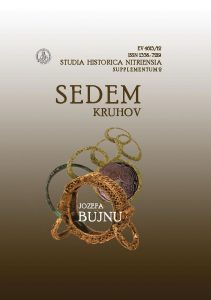Sídlisko autochtónnej Panónskej populácie v Rusovciach: prvé výsledky archeobotanických analýz
The Settlement of the Autochthonous Pannonian Population in Rusovce: The First Results of Archaeobotanical Analyses
Author(s): Jana Hlavatá, Vladimír VarsikContributor(s): Ľubomíra Kuzmová (Translator)
Subject(s): Archaeology, Cultural history, Local History / Microhistory, Social history, Ancient World
Published by: Univerzita Konštantína Filozofa v Nitre, Filozofická fakulta
Keywords: Roman period; settlement; Pannonia; autochthonous population; archaeobotany;
Summary/Abstract: At the time of the Roman occupation, the territory of the later province of Pannonia was inhabited by several native tribes of mostly Celtic origin. The present paper deals with the Roman rural settlement in Rusovce (in the hinterland of the Gerulata castellum), which the authors consider to be a testimony of the survival of the indigenous population far into the Roman period. Throughout the 2nd century, the settlement had a distinctive autochthonous character, and it was not until the 3rd century that its architectural appearance began to undergo transformation and Romanisation. The results of archaeological excavations document how the inhabitants of the settlement gradually yielded to the globalising pressure of the Roman culture. An archaeobotanical analysis of macrobotanical remains indicates that the cultural transformation of the settlement may have been reflected also in the agricultural sphere. The second century contexts differ from the third century ones in the proportion of plant species and the density of finds. While archaeobotanical assemblages dated to the 2nd century have significantly higher proportions of cereals, the later assemblages generally contain fewer finds and the species ratio is more equal.
Journal: Studia Historica Nitriensia
- Issue Year: 23/2019
- Issue No: SUPPL.
- Page Range: 427-448
- Page Count: 22
- Language: Slovak

